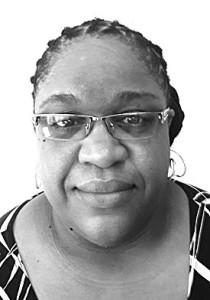Welcome to our series of bi-weekly columns under the title “The Gender Corner” published in collaboration with The Anguillian newspaper. Through this publication we hope to provide thought-provoking and stimulating discussion that will translate into practical ways of effecting positive change in gender affairs. This week we have a guest contributor, Susan V. Hodge, speaking out as a voice for gender equality. She raises pertinent points for discussion that will help us discover the far-reaching nature of gender considerations.
—
 Woman/man, girl/boy, male/female, she/he, him/her!
Woman/man, girl/boy, male/female, she/he, him/her!
“Gender” is a learned way for men and women to behave while “sex” is the determined biological characteristics of women and men. In other words, you are born the sex of a male or a female, but we learn the socially constructed behaviours of being a man or a woman. For instance, who taught you as a girl to play with dolls or as a boy to play with trucks?
We often hear things like “only women can give birth” and “only men can get prostate cancer.” These statements are true and refer to the biological characteristics of women and men. These facts are as true today as they were a decade ago wherever we are when we say it: east, west, north or south, whichever region of the world. However, statements like “only women can take care of children” or “only men can drive trucks” refer to socially determined characteristics assigned to women and men. As much as one can regard them as true, they are not universal, and can be agreed or disagreed upon, according to where and when you say them.
During the last century there have been many changes in the human condition. Women’s movements appeared to have emerged simultaneously all over the world, lobbying for political and economic identity and for their right to vote, participate in public and political life, receive appropriate education, and ultimately be legally entitled to control over their own lives. It is now realized that without true gender equality countries cannot develop fully, and the acquisition by women of civil and political rights is one of the most pervasive and significant way to achieve this – namely through The Beijing Declaration and Platform for Action and the Convention on the Elimination of All Forms of Discrimination against Women (CEDAW).
Gender equality is not only a basic human right, but its achievement has huge socio-economic ramifications. By empowering women, economies thrive and spur productivity and growth. Yet many gender inequalities remain deeply entrenched in every society. Women may lack access to decent work and face occupational segregation and gender wage gaps. They are too often denied access to basic education and health care. Women in all parts of the world suffer violence and discrimination. It brings to mind the tragic rape and murder in India of the young female medical student, the shooting of Malala just because she wanted an education; and right here in the Caribbean, in an overseas territory, the suspicious death in the Cayman Islands of an anti-domestic violence advocate.
We are also under-represented in political and economic decision-making processes. In Anguilla we may appear to be equal because we buy our own cars, build and own our own homes and businesses, and run things as independent women. BUT who sets the legislation? There is much talk in Anguilla about sustainable development but this can only be achieved if women and men are both involved equally and equitably in the development process at all levels of decision-making and responsibility, and in all spheres of life. Gender mainstreaming must become part of the development agenda for Anguilla.
Often when a woman speaks of gender equality she is viewed as a “man hater” or female supremacist. It’s not anything like that at all. Gender is a relational term. It does not refer simply to women or men, but rather to the relationship between them. “Gender relations” refer to the ways in which society defines rights, responsibilities and identities of men and women in relation to one another. For example, a woman can be a wife in relation to the man who is her husband, an employee in relation to a male employer, a daughter in relation to her father, or a pupil in relation to his teacher.
In conclusion, using the words of reggae legend Jimmy Cliff, as women we …“got a hard road to travel and a rough rough way to go,” but with determination and tacit approval, gender equality and justice can be achieved.








